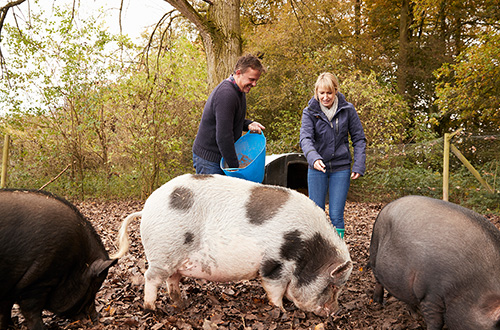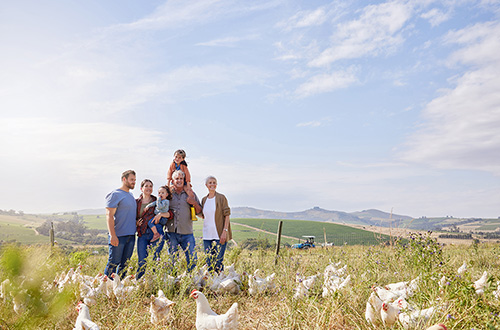With many property owners embracing their property’s short-term letting potential through websites such as Air BnB, and those in the farming industry seeking to diversify, we are seeing an increasing number of queries from within our client base about converting or acquiring properties with the purpose of running them as holiday lets.
This article aims to explore some of the tax issues associated with such plans, with a particular focus on individual, personal ownership of such properties as opposed to via a limited company.
Residential property investment in general gets a pretty rough ride in terms of tax treatment; restrictions on tax relief for mortgage interest payments, and Business Assets Disposal Relief (BADR - formerly known as Entrepreneurs’ Relief) is not available, to name just two examples.
However, the Furnished Holiday Lettings (FHLs) regime is something of an oddity in the tax world because FHLs are treated as a form of ‘quasi-trading’ and can therefore be eligible for a whole array of reliefs and allowances not available to the ‘normal’ residential property investor.
What are the advantages of Furnished Holiday Lettings Status?
Meeting the criteria to qualify as a FHL can provide the following advantages over a non-FHL property business:
- Profits from FHLs are ‘net relevant earnings’ for pension purposes. Therefore, tax relief can be claimed on pension contributions made against the FHL income, unlike rental income from usual buy-to-let properties.
- Capital allowances may be claimed more widely and are not subject to the normal exclusion prohibiting a claim for plant used in ordinary residential lettings.
- Spouses or civil partners who operate the business jointly are not constrained by the usual rule for joint spousal investments that means profit must be split 50/50, unless the relevant election has been made for it to be split based on actual ownership shares; profits may broadly be split as desired subject to being able to demonstrate that an FHL partnership business exists.
-
Various very valuable Capital Gains Tax reliefs are available:
- BADR
- Business Asset Rollover Relief
- Business Asset Gift Relief
- Relief for Loans to Traders - Additionally, FHLs are outside the restriction on income tax relief for finance costs in relation to residential properties, meaning that relief should be available on all mortgage interest should be relievable.
What are the disadvantages of Furnished Holiday Lettings Status?
For balance we should mention a couple of remaining tax drawbacks to FHLs. Unlike ‘real’ trading, the quasi-trading status of FHLs means that they don’t get all the advantages of trading.
- Losses are restricted to use against future profits of the furnished holiday lettings business for income tax only and cannot be offset against other sources of income.
- The provision of ‘holiday accommodation’ is generally taxable for VAT purposes. This may require VAT registration, the digital keeping of records and making returns.
- They don’t often get advantageous treatment for IHT purposes – see more commentary on this point further below.
Conditions to qualifying as a Furnished Holiday Let
The conditions which must be met to obtain the advantages above are quite restrictive:
The properties must be furnished in a way that would allow for ‘normal occupation’. The properties must be let on a commercial basis.
The letting activity must then meet all the following conditions:
- the accommodation must be available for letting on at least 210 days in a year
- it must actually be let to the public for 105 days in a year, ignoring lettings which exceed 31 days (i.e., most stays should be short term in nature)
- the accommodation must not be let for more than 155 days in a relevant period for periods in excess of 31 days per stay.
Averaging election
If there are several FHLs within one portfolio, then it is possible to test the letting conditions against the average occupation rate for all properties. This can save one property which has had bad occupancy rates.
Grace period election
Where a property has passed the letting conditions, a ‘period of grace’ election can be made to protect the FHL status of the property for the next two years if there was a genuine intention to meet the letting condition during the grace period. This election proved particularly useful for existing FHL owners who were not able to let their properties for holiday breaks throughout the pandemic.
Inheritance Tax
Unlike Income Tax and capital gains tax, there are no specific provisions relating to FHLs for inheritance tax. In the past, some owners have been able to get business property relief (BPR) for their FHL business which removed 100 percent of the value from their inheritance tax estate.
Recently, HMRC has decided to challenge some of these cases and the situation is more complex. In simple terms, a ‘straight-forward’ FHL business is unlikely to qualify for BPR. However, where the activities go beyond just providing holiday accommodation and extend to providing bed-and-breakfast or other trading activities, then it may still be possible to claim BPR. This is a complex area and advice should be sought at the earliest opportunity if obtaining BPR is a main driver for using the FHL regime.
Other taxes and reliefs
Although not specific to FHLs, there are other considerations when either acquiring or converting an FHL.
- Stamp Duty Land Tax – on acquisition, there may be reliefs available to mitigate the SDLT cost
- VAT on conversion – when converting commercial property to residential, there are special rules, and potential opportunities for reduced rates to apply
- Capital allowances on conversion – the analysis of what is claimable can change based on what stage the conversion is at.
If you’re thinking about buying or setting up a FHL business, then please get in contact with one of our specialists to discuss your aims and see if we can help.
If you have any questions about the above, or would like more information specific to your circumstances, please enter your email address below and we will get in touch:
















